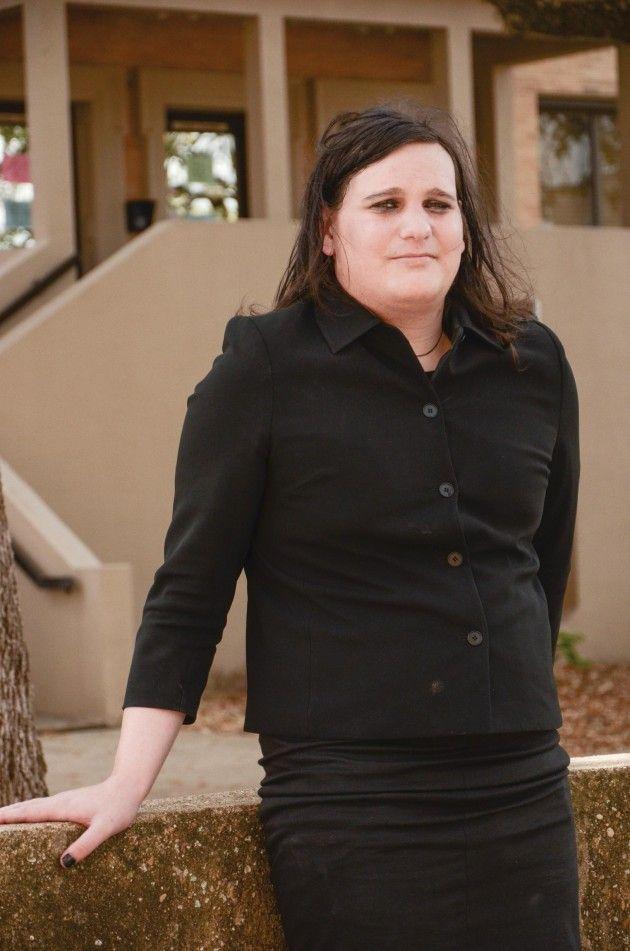Pallavi Kaushik, city reporter, sat down with Eleanor Lockhart, communication graduate student and transgender woman. Lockhart, who was given the name Luke at birth, shared her experiences as a student, an academic and a woman.
THE BATTALION: What was your life like growing up?
Lockhart: Well it’s important to understand that for my entire life – up until August of last year – I lived my life as a guy and didn’t particularly feel comfortable or enjoy living like that. As long as I could remember I have felt resentment to the gender assignment I received and I can be sure feeling that if I ever were to reconstruct my life from the very beginning, I would want to be born a female. To me it had never occurred that I could be a transgender woman at the time without being given the chance to reboot my entire life. The transgender visibility was very low during the times I was growing up. At first I assumed that being transgender meant ruining any chances of having a normal life and was going off only media representations and stigmas. As I kept up my contacts I learned that transgender people actually had statuses that they would be able to overcome. As all these feelings dawned on me, I approached graduate school. I wouldn’t let myself think it – because it’s a big change. I know myself and knew that if I thought of transitioning as anything but a scoffing dismissal, I would end up pulling through – because I’ve always been a determined personality.
THE BATTALION: As a younger student what was your experience like in college?
Lockhart: I started taking my first college courses part time when I was 12, so when it came time to be old enough for high school I ‘dropped out of college’ to attend public high school. And that’s where I sort of got all my bullying. I did finally make a few close friends, but the bullying remained. I was bullied for being a nerd who liked Star Wars and with a name like Luke it led to nicknames like “Skywalker” and even some homophobic slurs – which was strange for me considering I was nothing but publicly straight at the time. That’s where I slowly developed this association with being a nerd or anybody slightly different and being persecuted for it. I got through it – luckily the school dealt with the bullying. All through this process to be more socially interactive and aware I was struggling to define myself as something and none of the options were something I could live with.
THE BATTALION: How has your identity as a transgender woman and childhood affected you life in academia and grad studies?
Lockhart: So, I often assume and worry that my identity was so different from the Aggie norm when I got here – being an unathletic Wisconson male and on the left side of the political spectrum. I was not the ‘usual’ Aggie material – even as a guy. I actually feel as if I get all the possible, ‘Woah, you’re different’ up front now. It’s been two semesters that I have been Ellie and not Luke in the classrooms now and I haven’t received any direct prejudice up front or been a victim of hatred yet. And Aggieland has let me have a fairly positive experience. I don’t feel like it’s accentuated either. We are statistically one of the least LGBT-friendly colleges in Aggieland, however people are polite here. Even if they are judging you within, they are generally polite up front.
THE BATTALION: Do you hope to be an influence or mentor to students who may be dealing with similar sentiments?
Lockhart: Yes I certainly hope to be. On March 31, it was actually International Day of Transgender Visibility and I hope that my visibility aids people in understanding their feelings. See, some people might still be unaware of the transgender option and if you are, you need to be able to find out. So certainly, I feel being a visible LGBT is a good thing on this campus. It certainly may lead more students to be more aware on a very abstract level. And also the more of us that can come out of the closet safely and be visible is a step toward preventing others from making us invisible. But it’s also something I very strongly emphasize in my class. I’m here because I am an expert on the subject that I have been assigned to teach and that you have chosen to study and I ask that you see me as a peer in your school and a lecturer in your class regardless of how I look. But definitely I also let my students know that they are welcome to come and speak to me about any personal concerns or guidance.
Q&A: The road to identity
April 2, 2014
0
Donate to The Battalion
Your donation will support the student journalists of Texas A&M University - College Station. Your contribution will allow us to purchase equipment and cover our annual website hosting costs.
More to Discover









